This document provides an overview of the F# programming language. It discusses key features of F# including functional programming paradigms like higher-order functions, pure functions and immutability. It also covers multi-paradigm support, performance similar to C#, and tools for F# in Visual Studio. Examples are provided for common constructs like functions, recursion, pattern matching, and computation expressions.
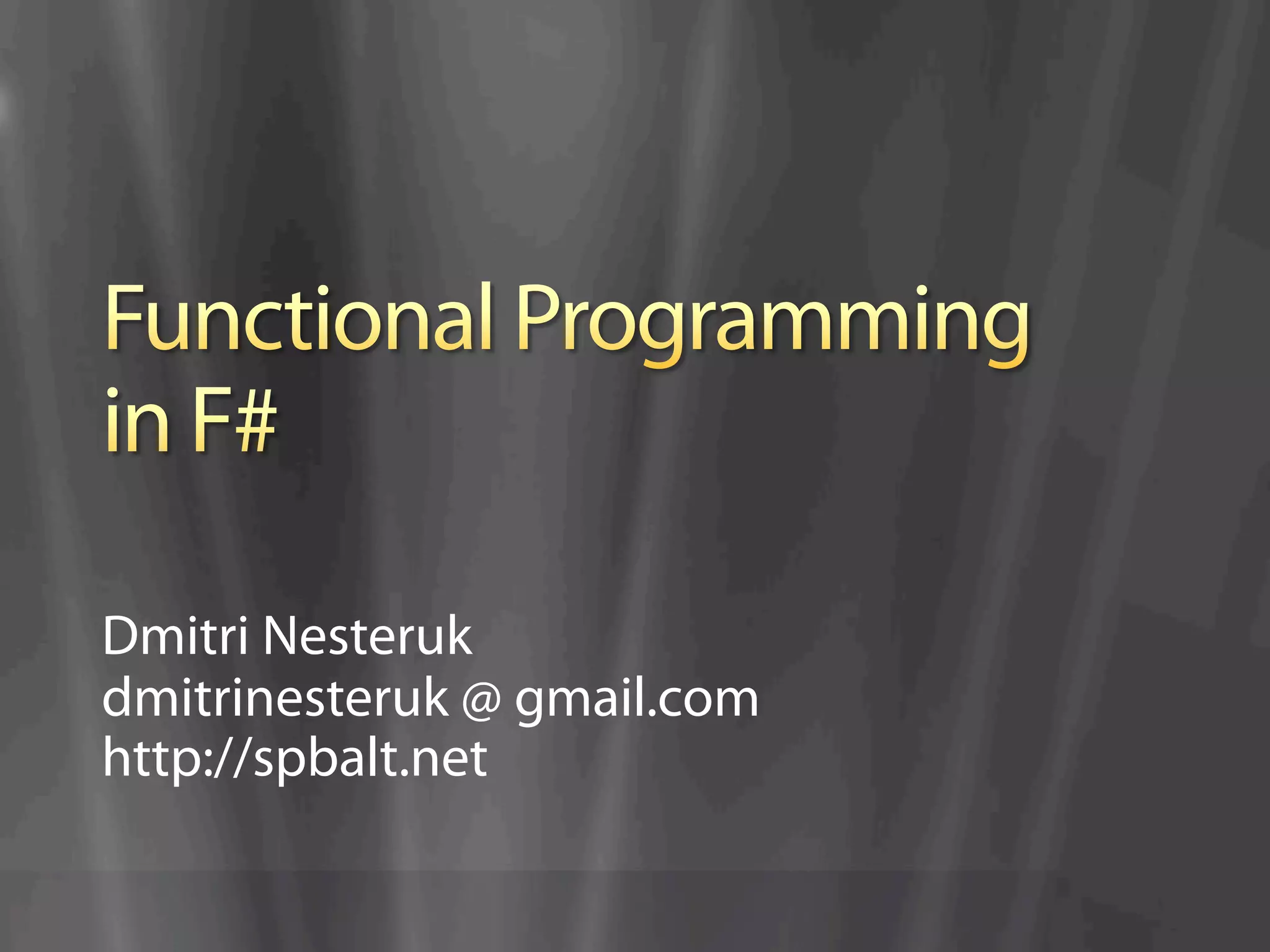
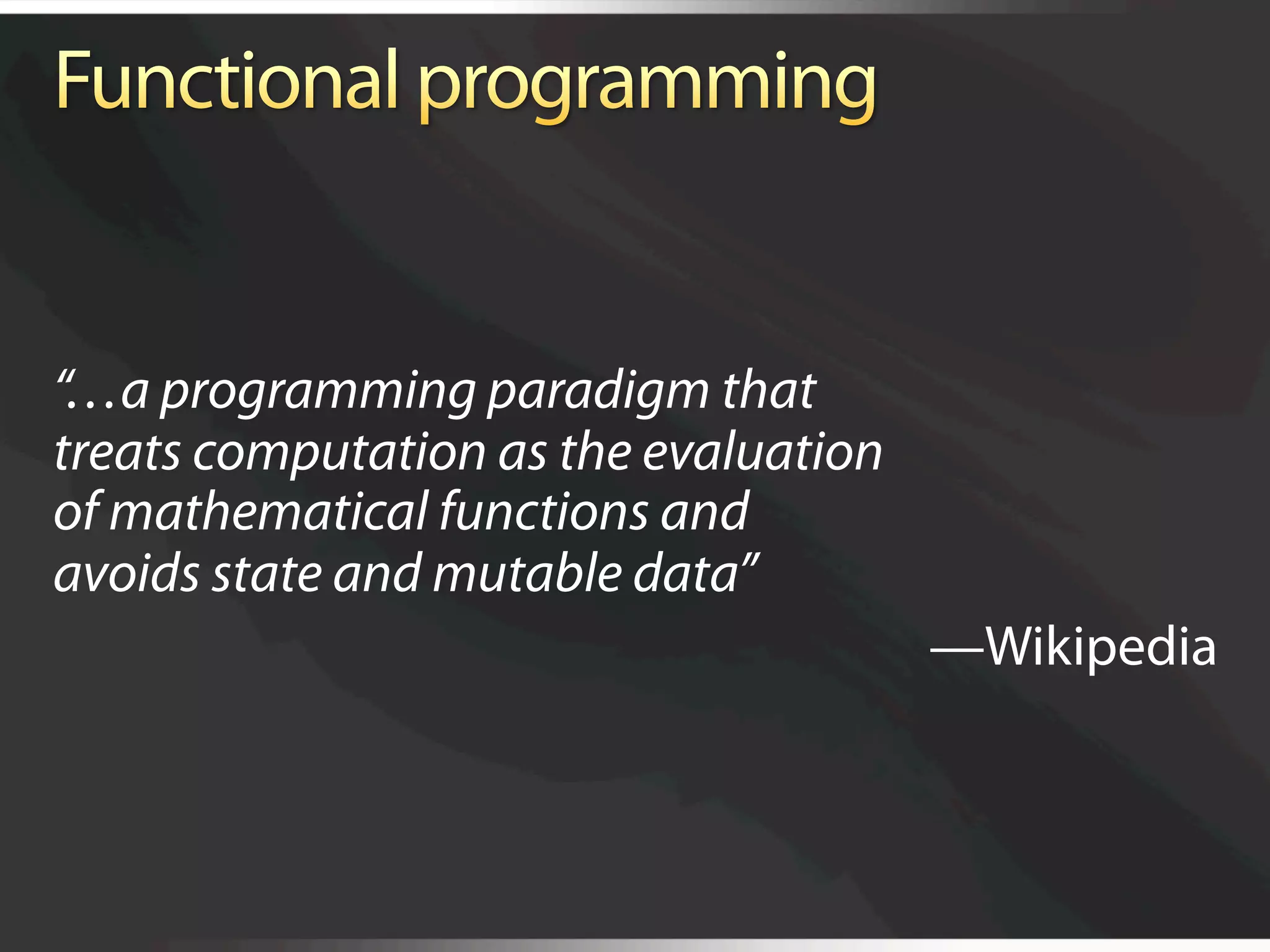
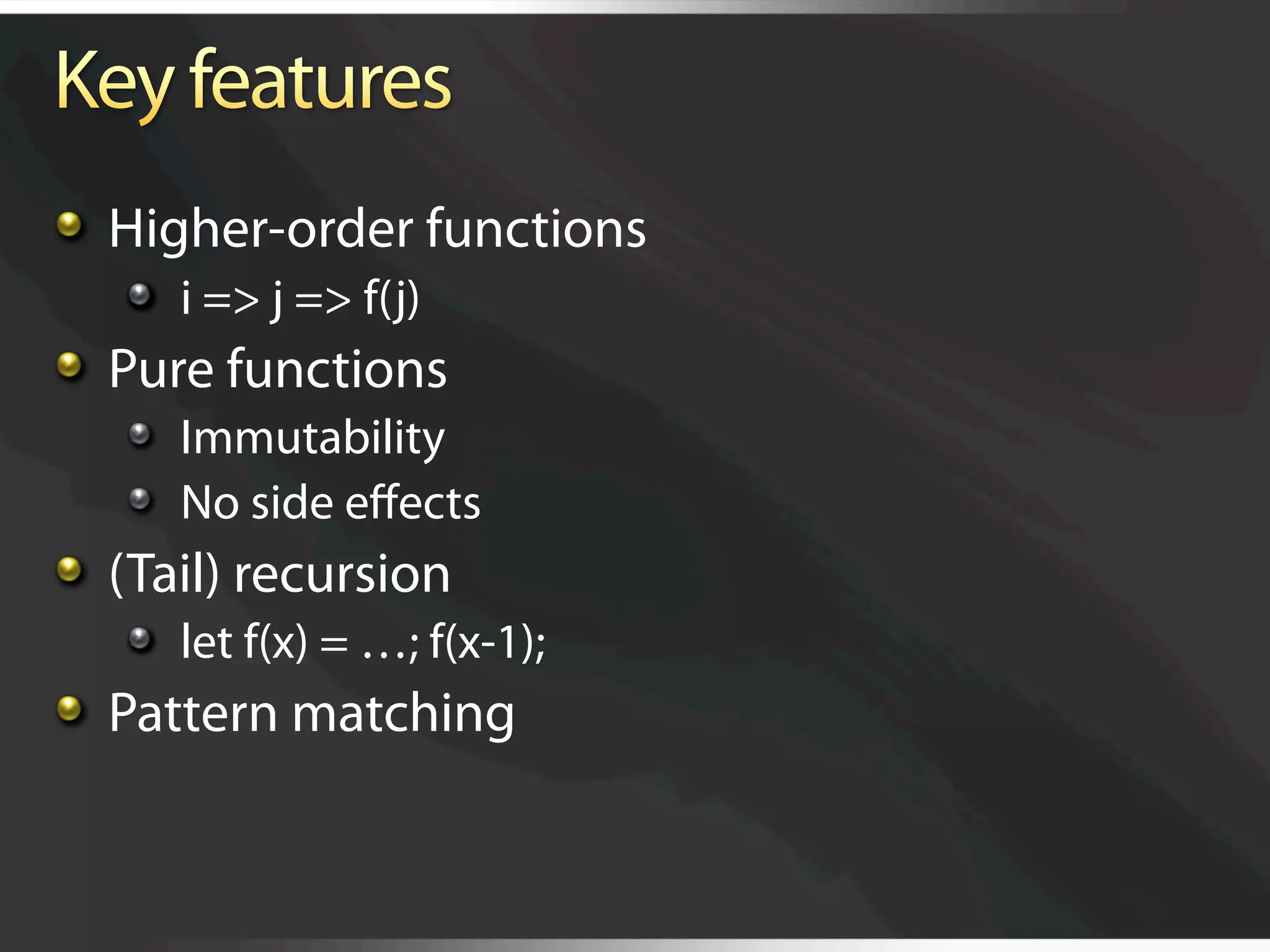
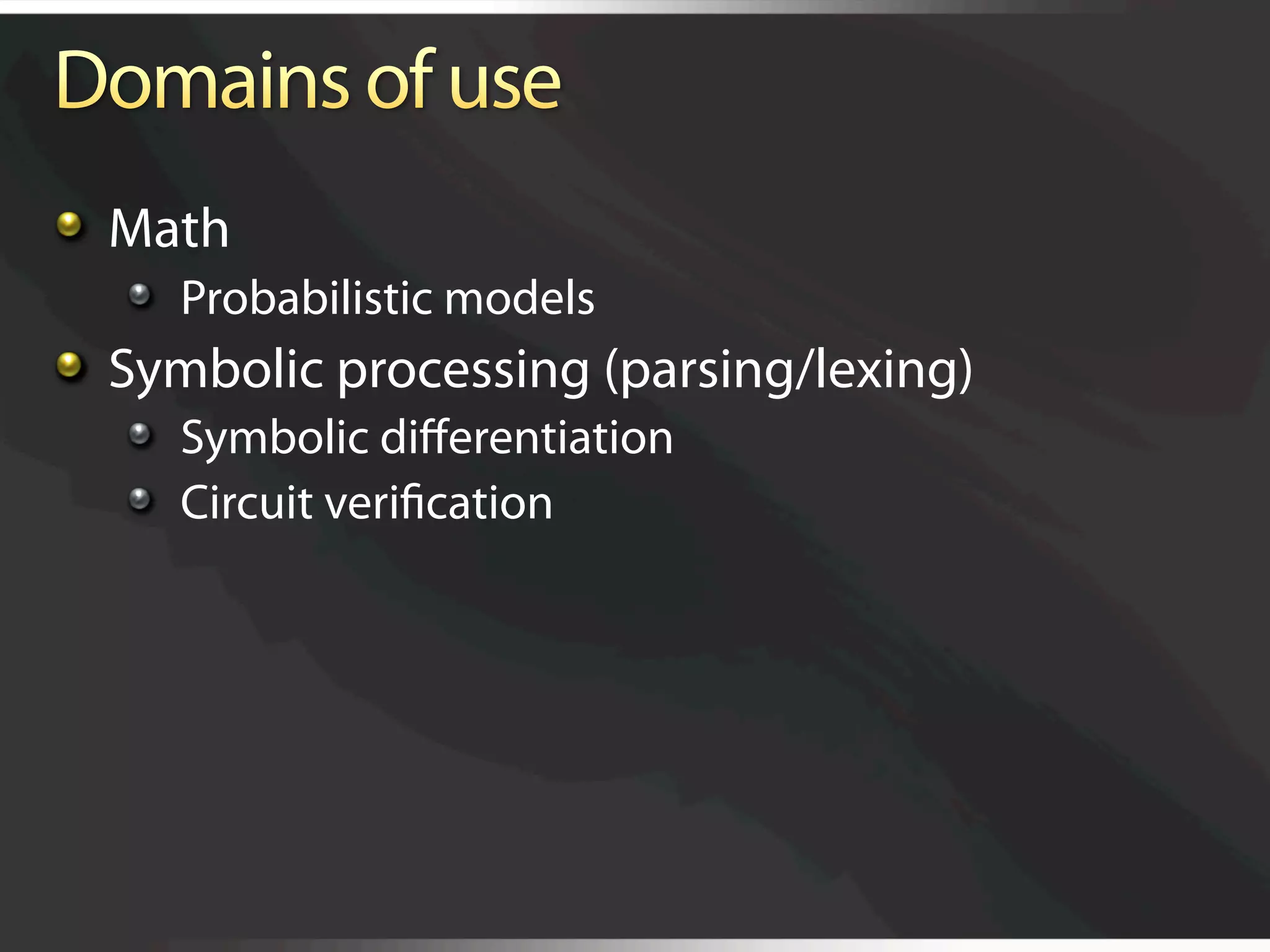
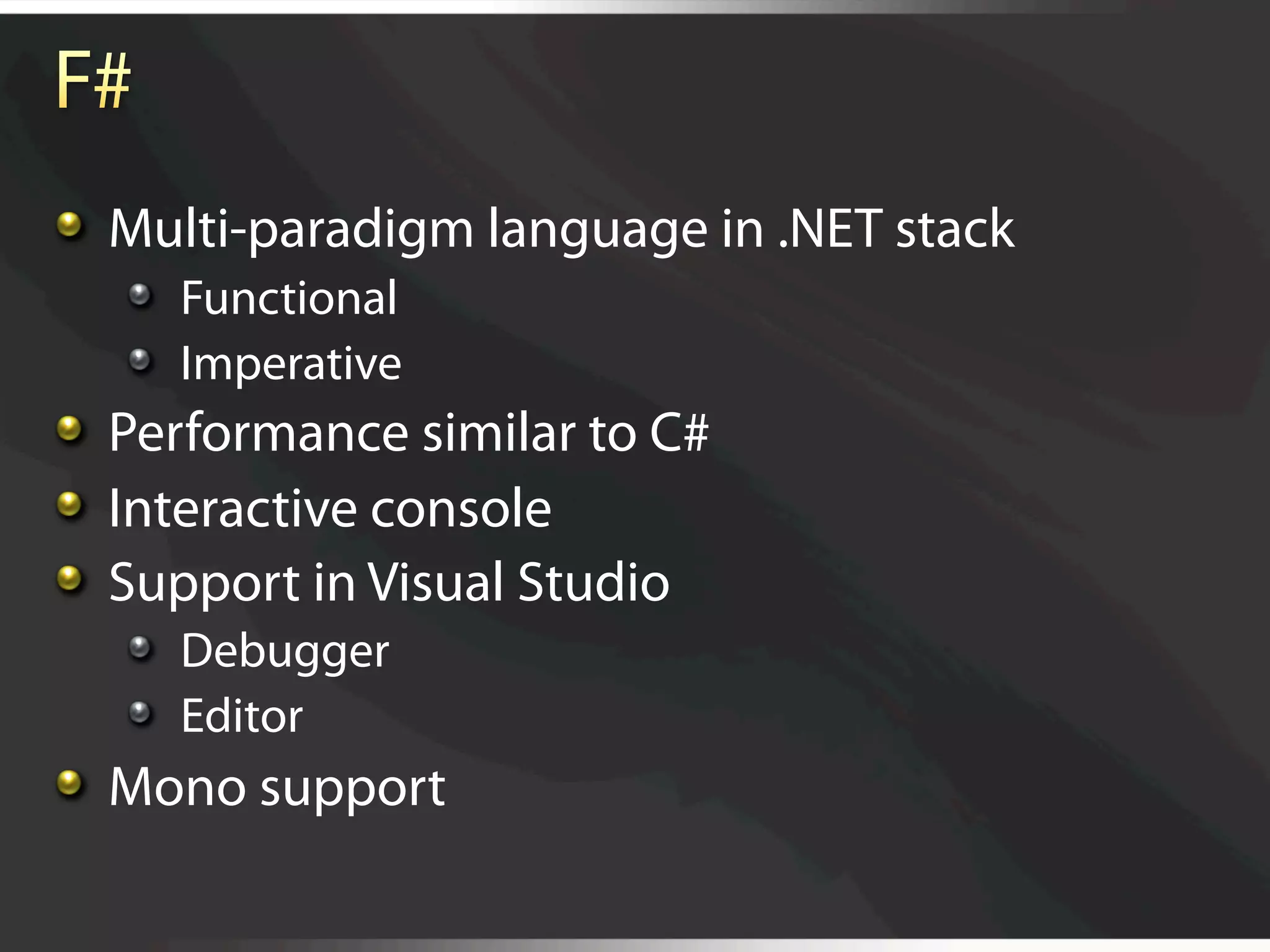
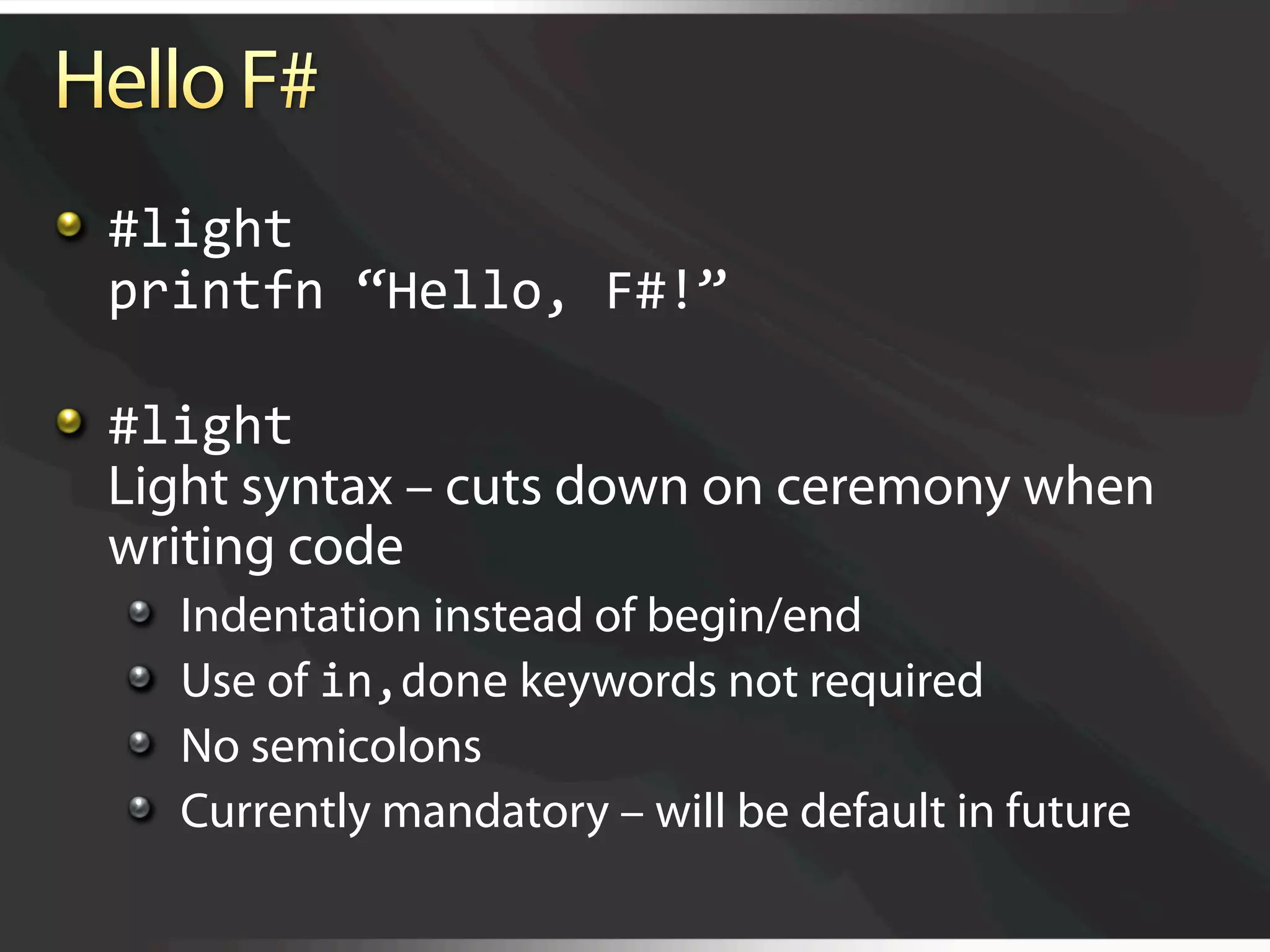
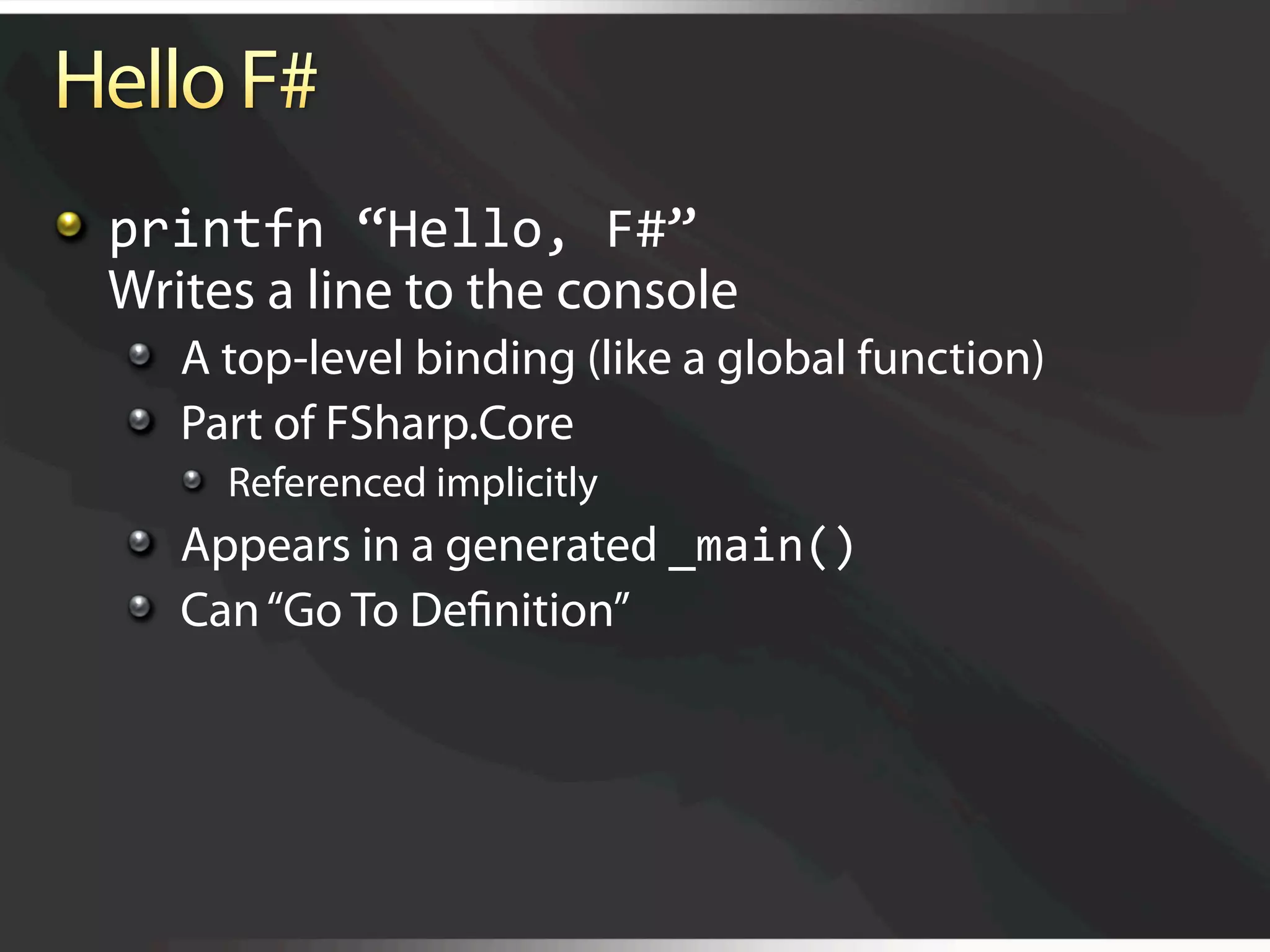
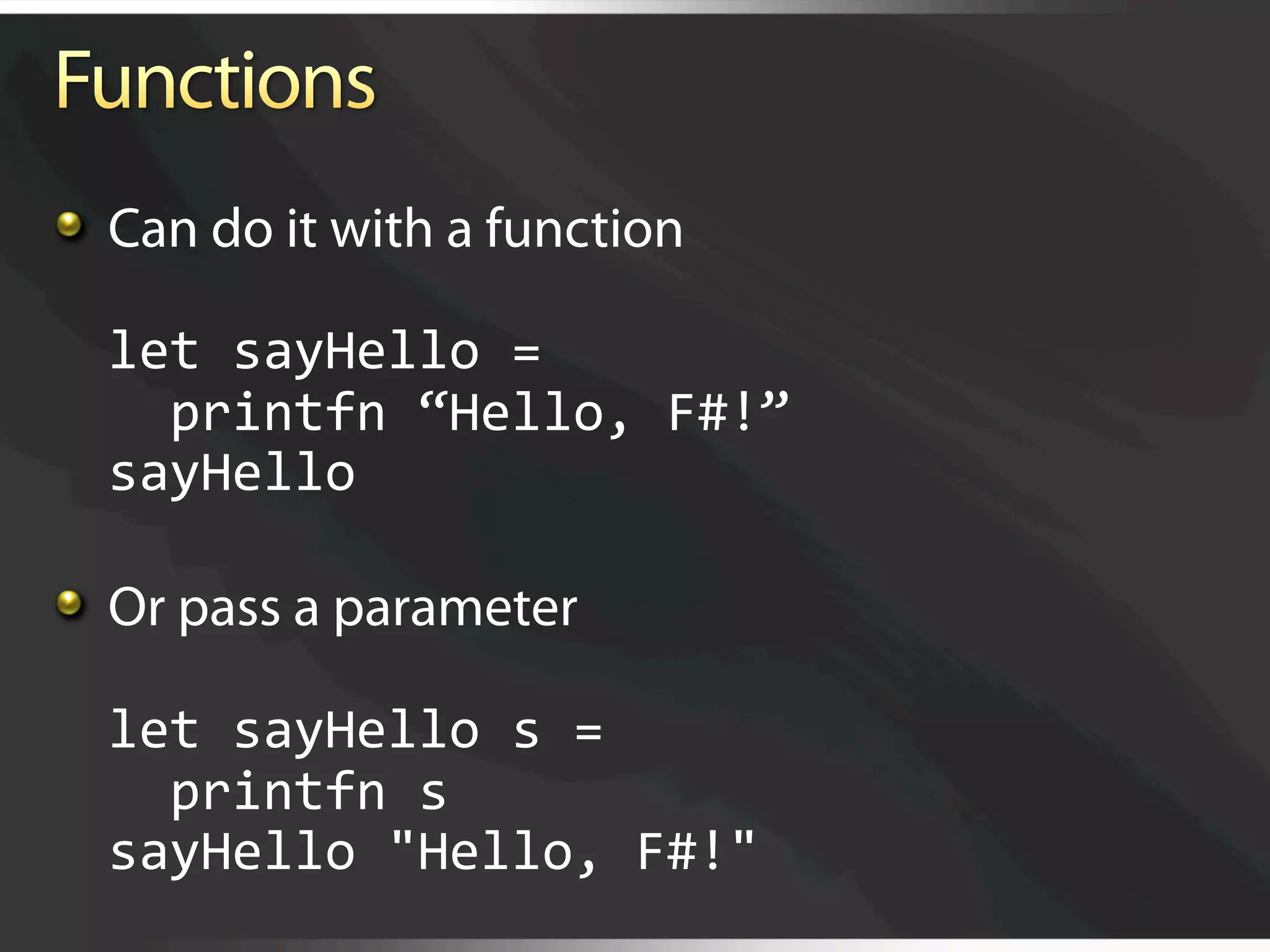
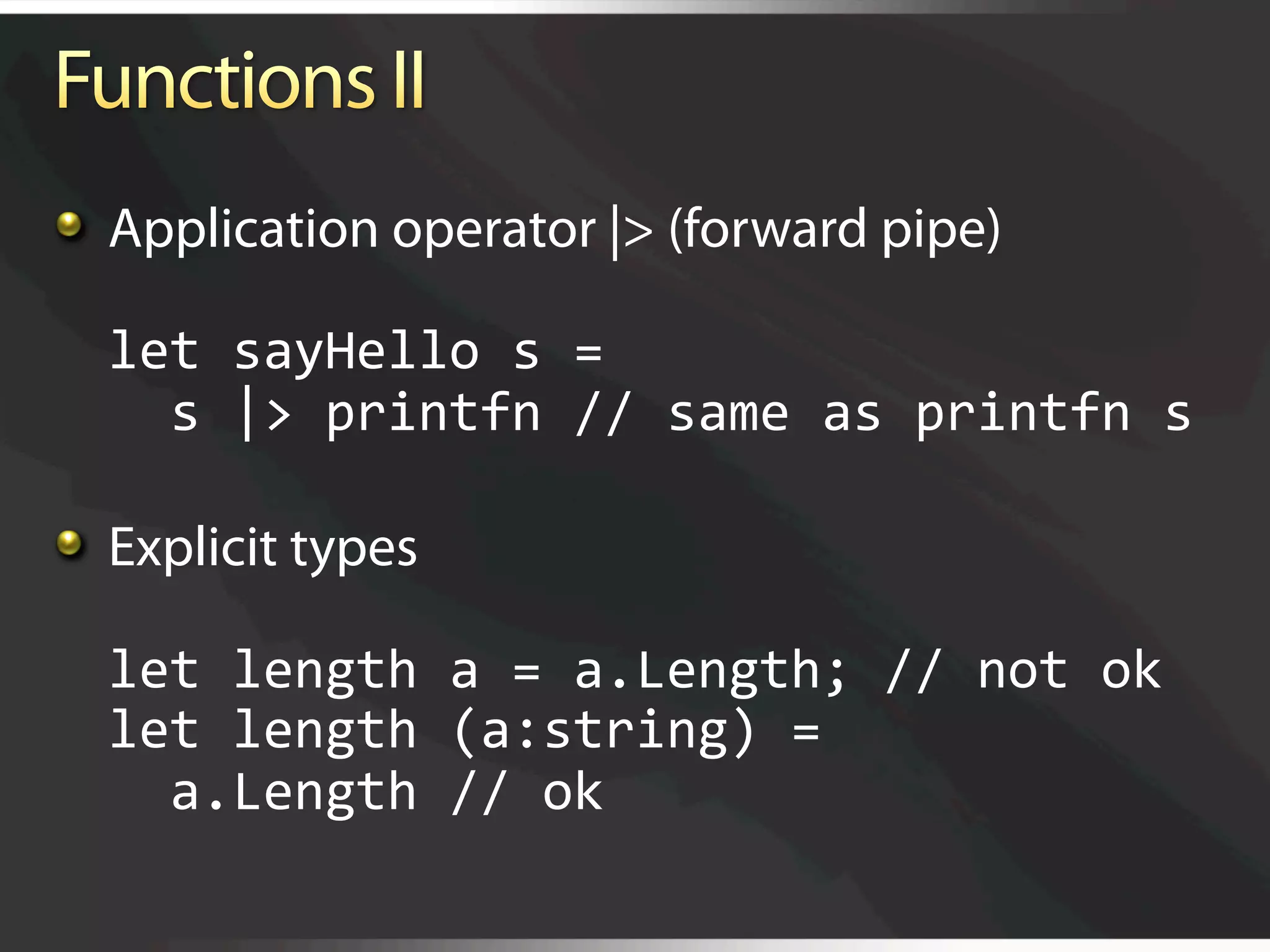
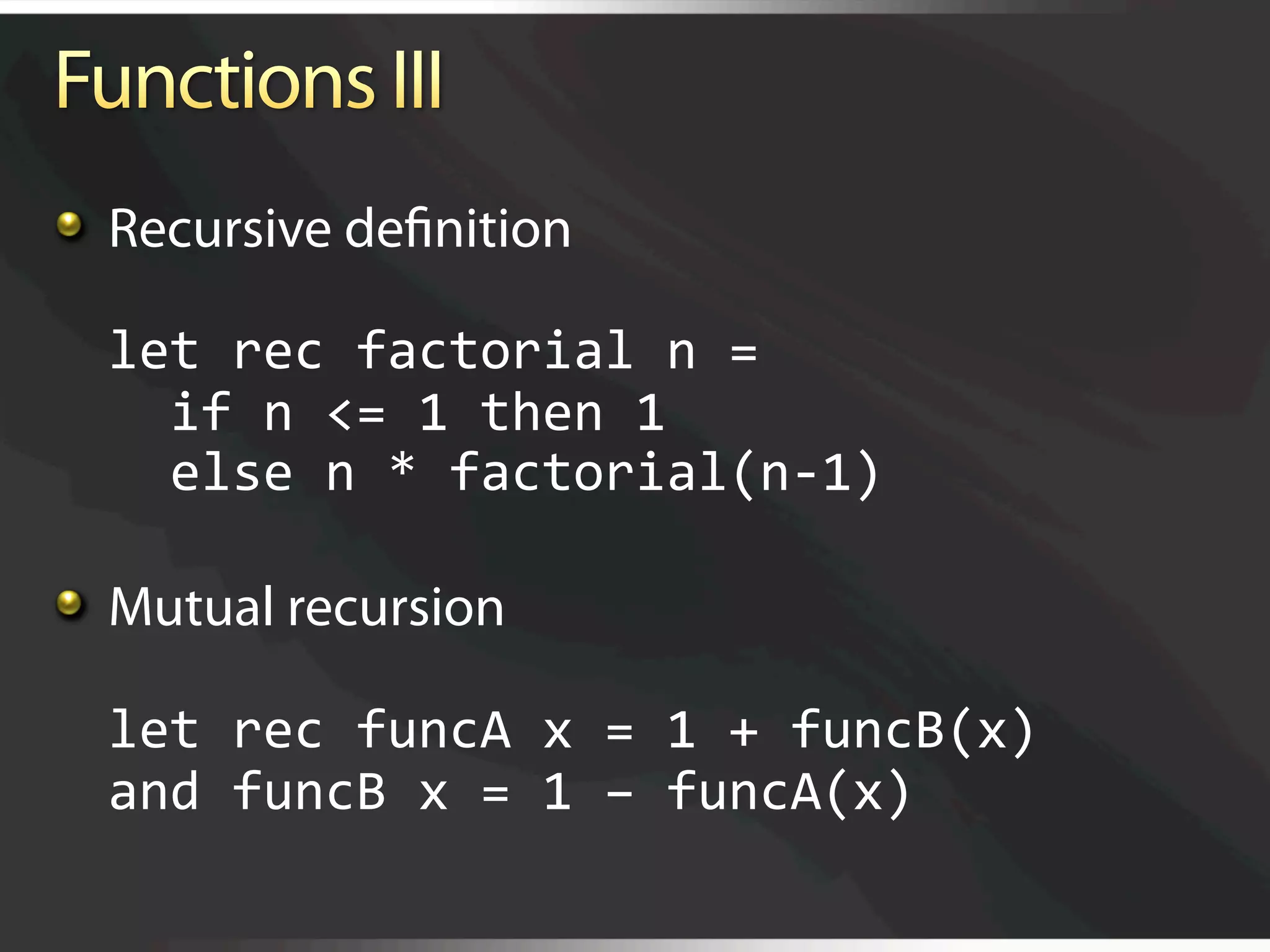
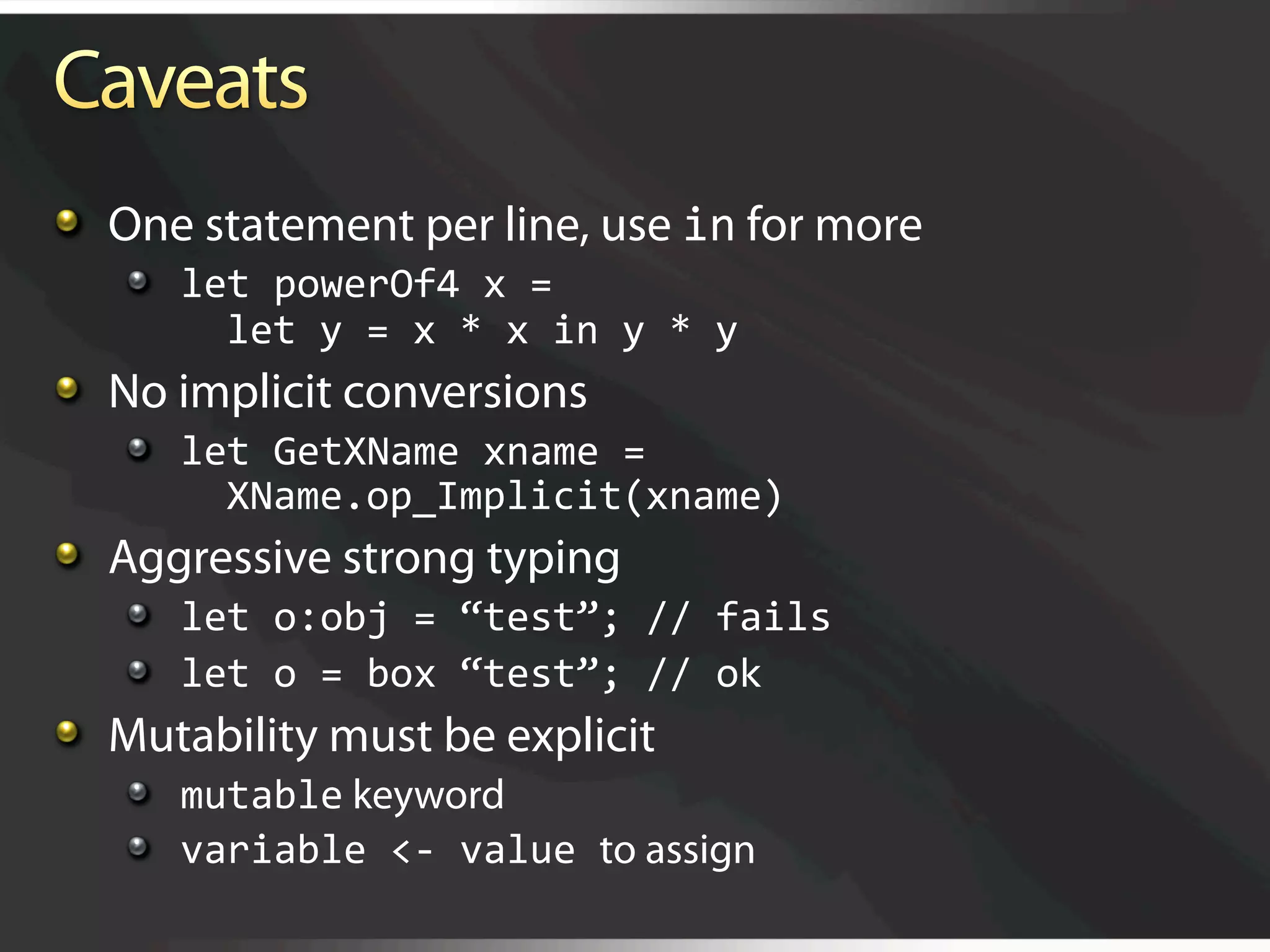
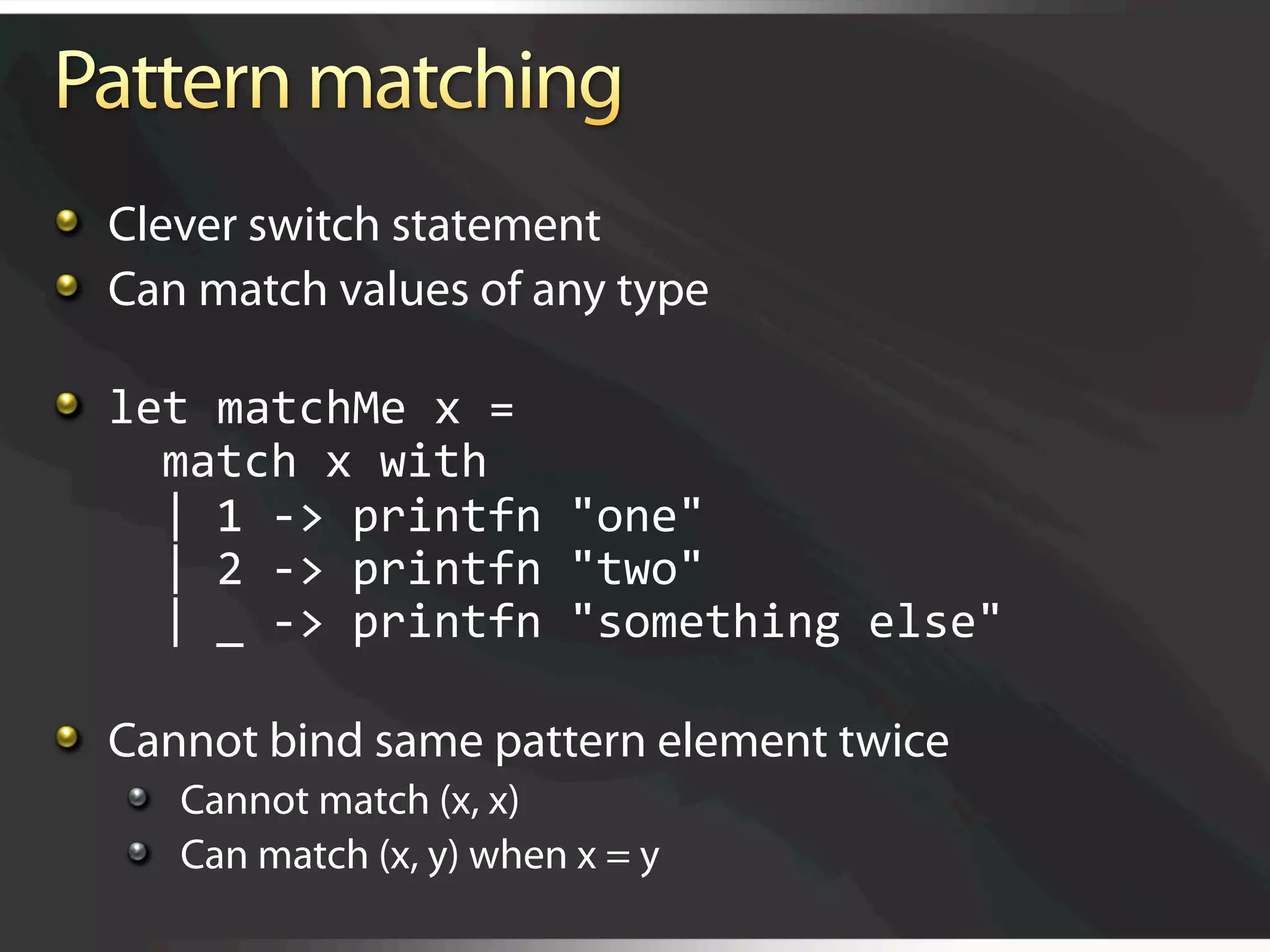
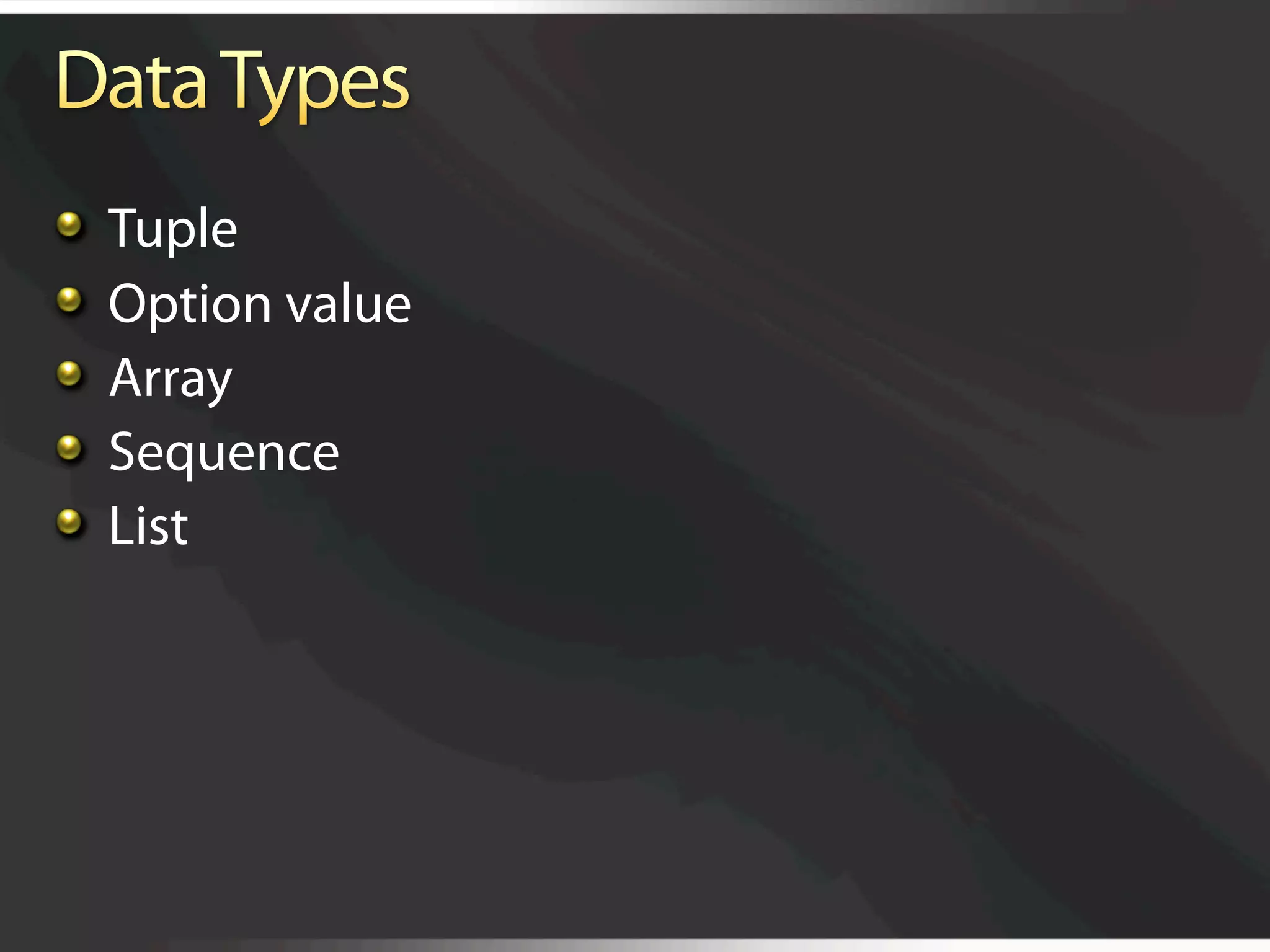
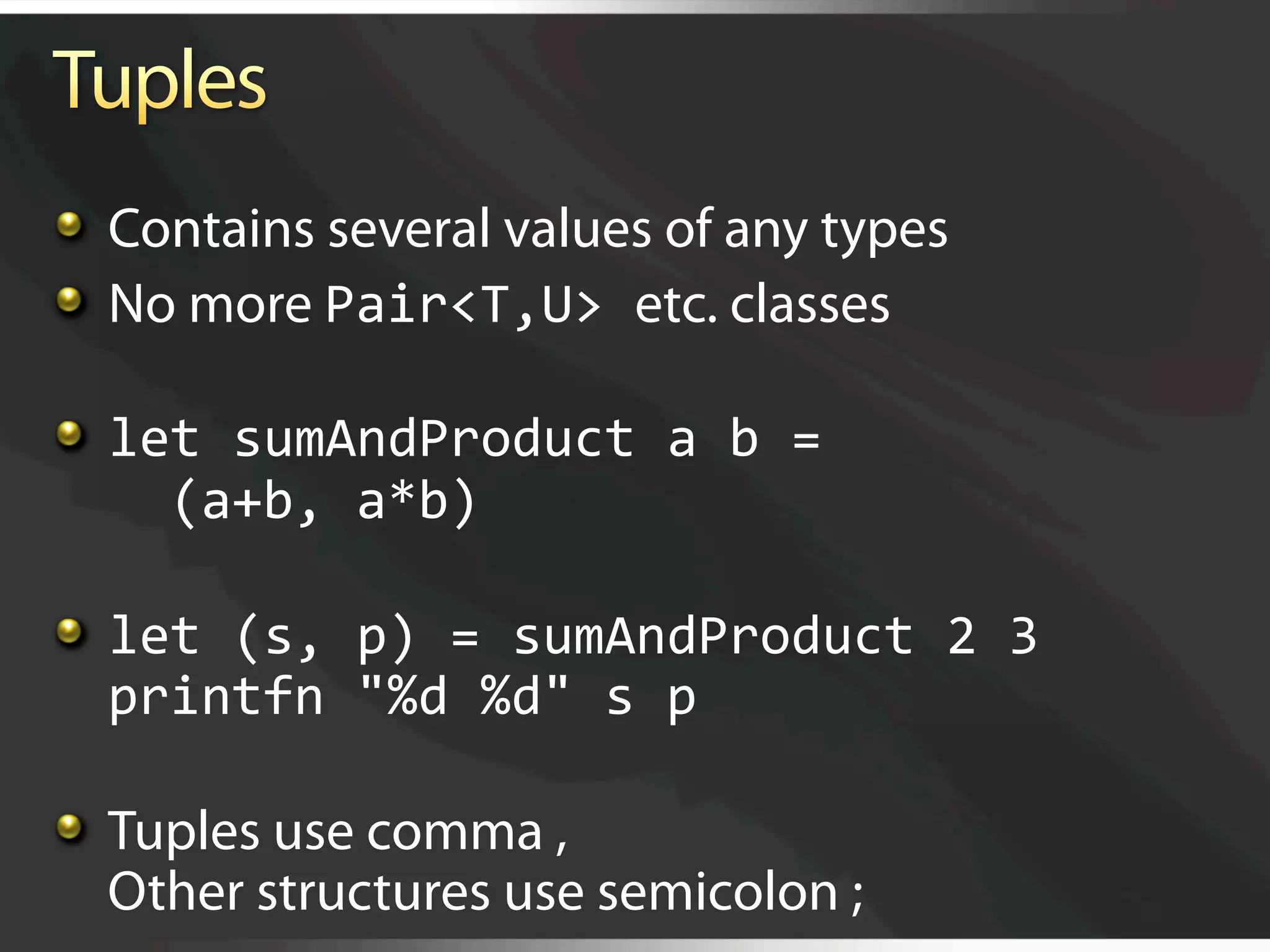
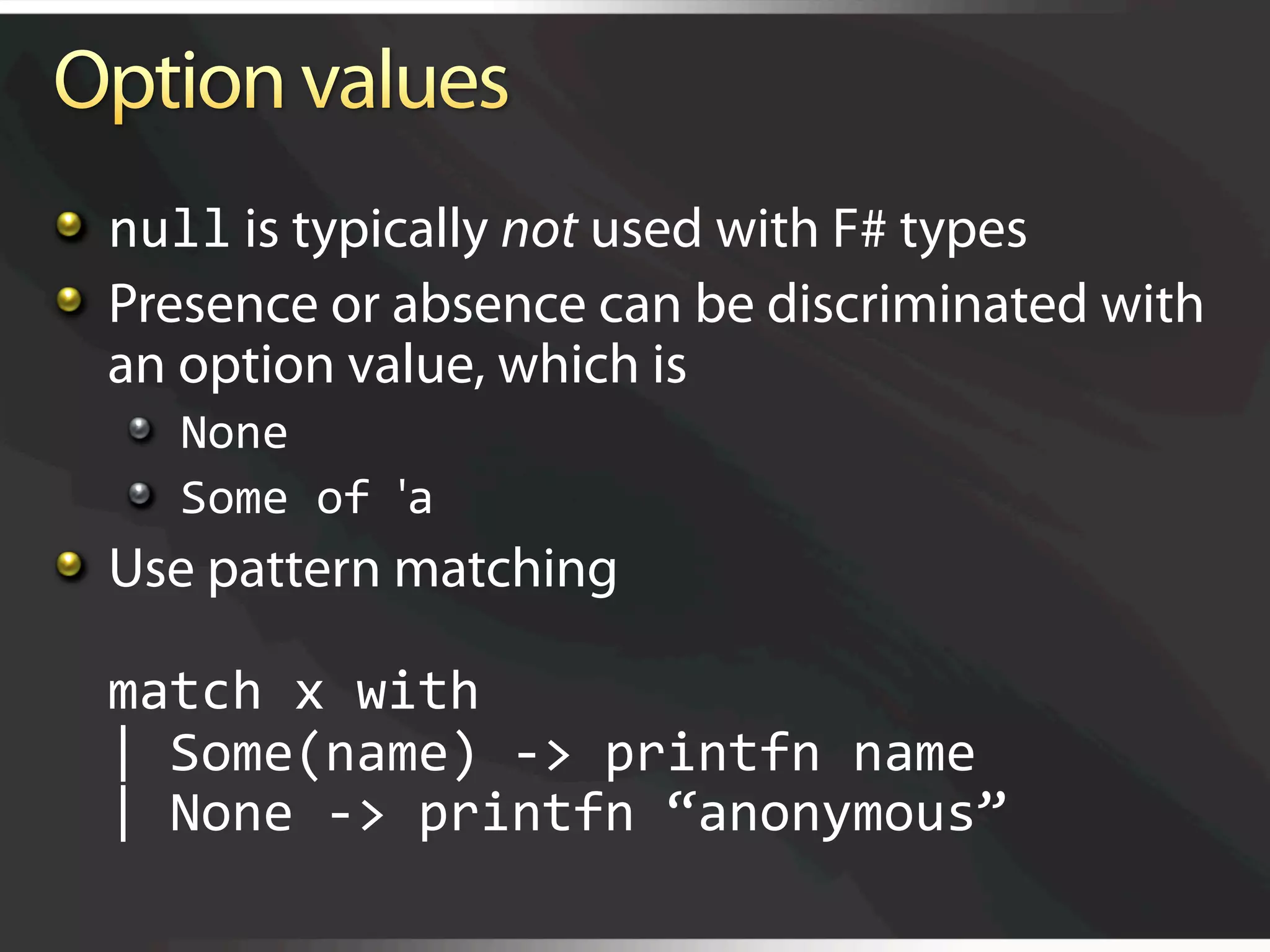
![Your typical CLR array
let people = [|
“john”;
“jane”;
“jack”
|]
people.Length
yields 3](https://image.slidesharecdn.com/dmitrinesterukfsharp1-090924035648-phpapp02/75/Functional-Programming-in-F-16-2048.jpg)
![Enumerable values
let a = seq [1; 2; 3]
let b = seq { for i in 1 .. 10 ‐> (i*i) }
Lazy-inited
seq { 1 .. 10000000 }
Step
seq { 1 .. 2 .. 10 }
yields 1, 3, 5, 7, 9
Strings are char sequences
printfn "%d" (Seq.length "Hello")
Iterated with for .. in .. do
for i in mySeq do printfn “%d” i](https://image.slidesharecdn.com/dmitrinesterukfsharp1-090924035648-phpapp02/75/Functional-Programming-in-F-17-2048.jpg)
![Linked list of values
[1; 2; 3]
Has head and tail
Head is the first element
Tail is everything else
[] is the empty list
[1, 2, 3] has length of 1:)](https://image.slidesharecdn.com/dmitrinesterukfsharp1-090924035648-phpapp02/75/Functional-Programming-in-F-18-2048.jpg)
![let a = [1; 2; 3]
Head = 1
Tail = [2; 3]
let b = 0 :: a
[0; 1; 2; 3]
let c = a @ b
[1; 2; 3; 0; 1; 2; 3]](https://image.slidesharecdn.com/dmitrinesterukfsharp1-090924035648-phpapp02/75/Functional-Programming-in-F-19-2048.jpg)
![let rec sumAll myList =
match myList with
| h :: t ‐> head + sumAll(t)
| [] ‐> 0
let rec nonZero myList =
match myList with
| 0 :: t ‐> 1 :: nonZero t
| h :: t ‐> h :: nonZero t
| [] ‐> []
let rec htmlDecode text =
match text with
| ‘&’ :: ‘g’ :: ‘t’ :: ‘;’ :: tail ‐>
‘>’ :: htmlDecode tail // and so on](https://image.slidesharecdn.com/dmitrinesterukfsharp1-090924035648-phpapp02/75/Functional-Programming-in-F-20-2048.jpg)
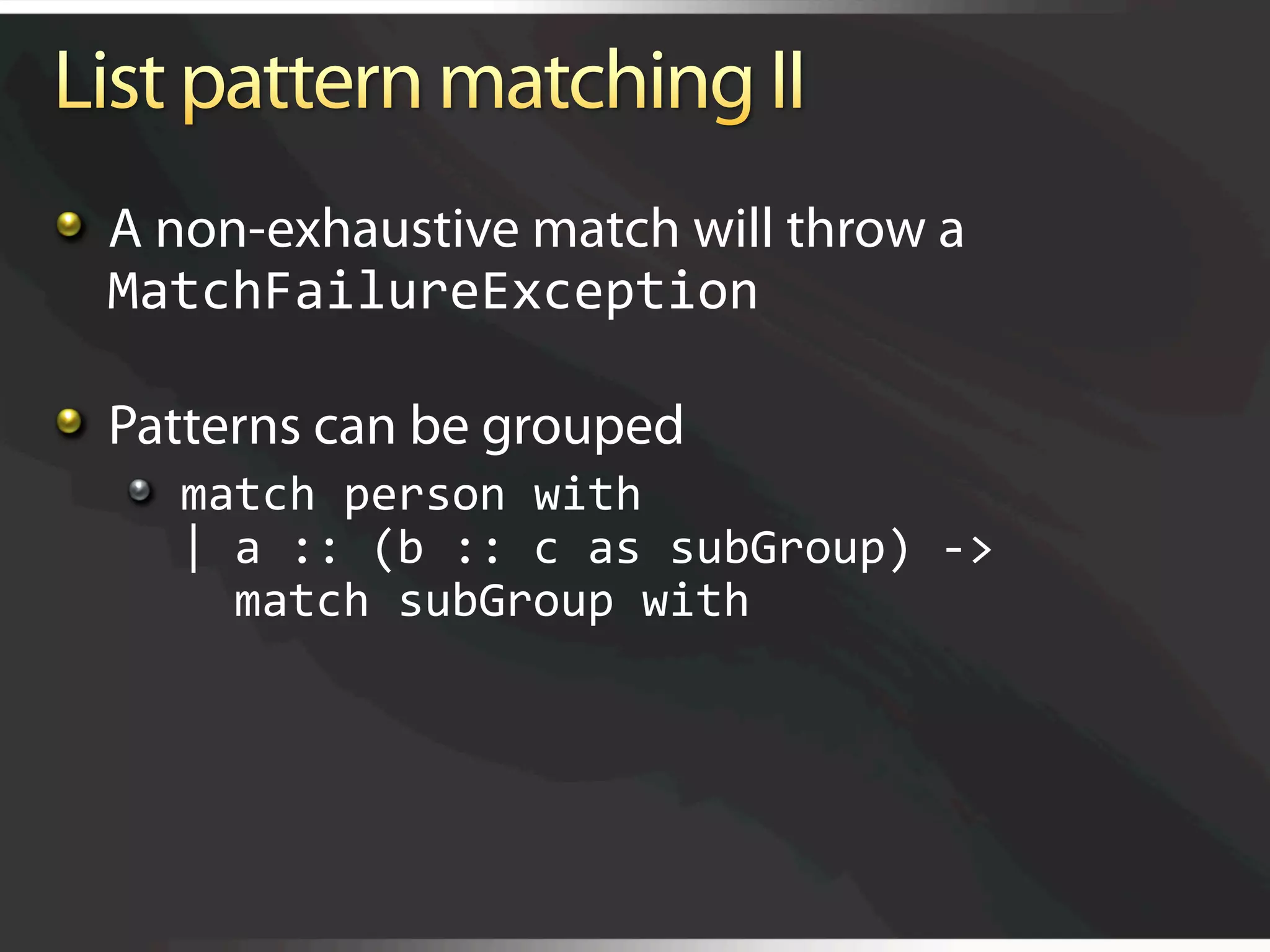
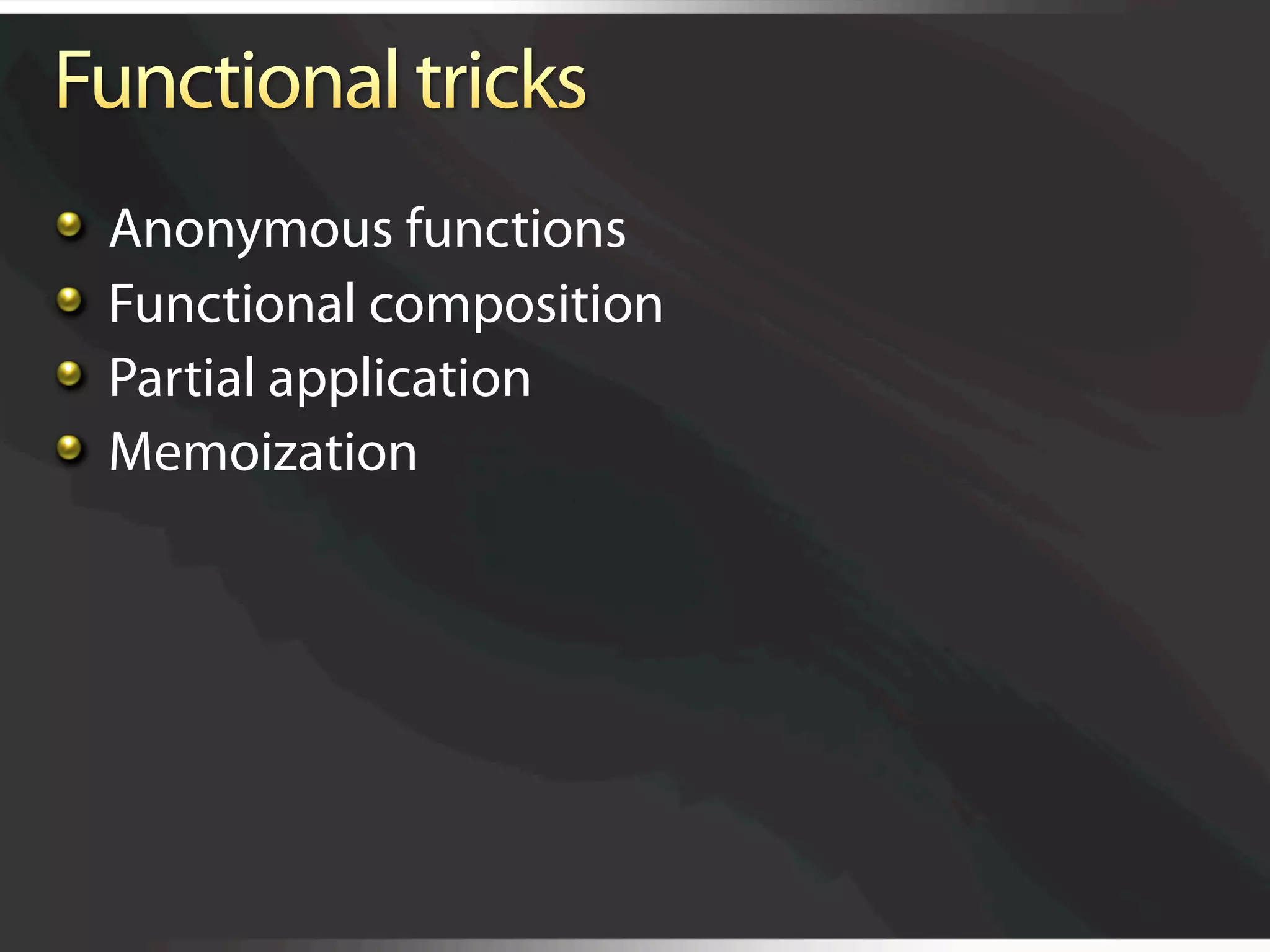
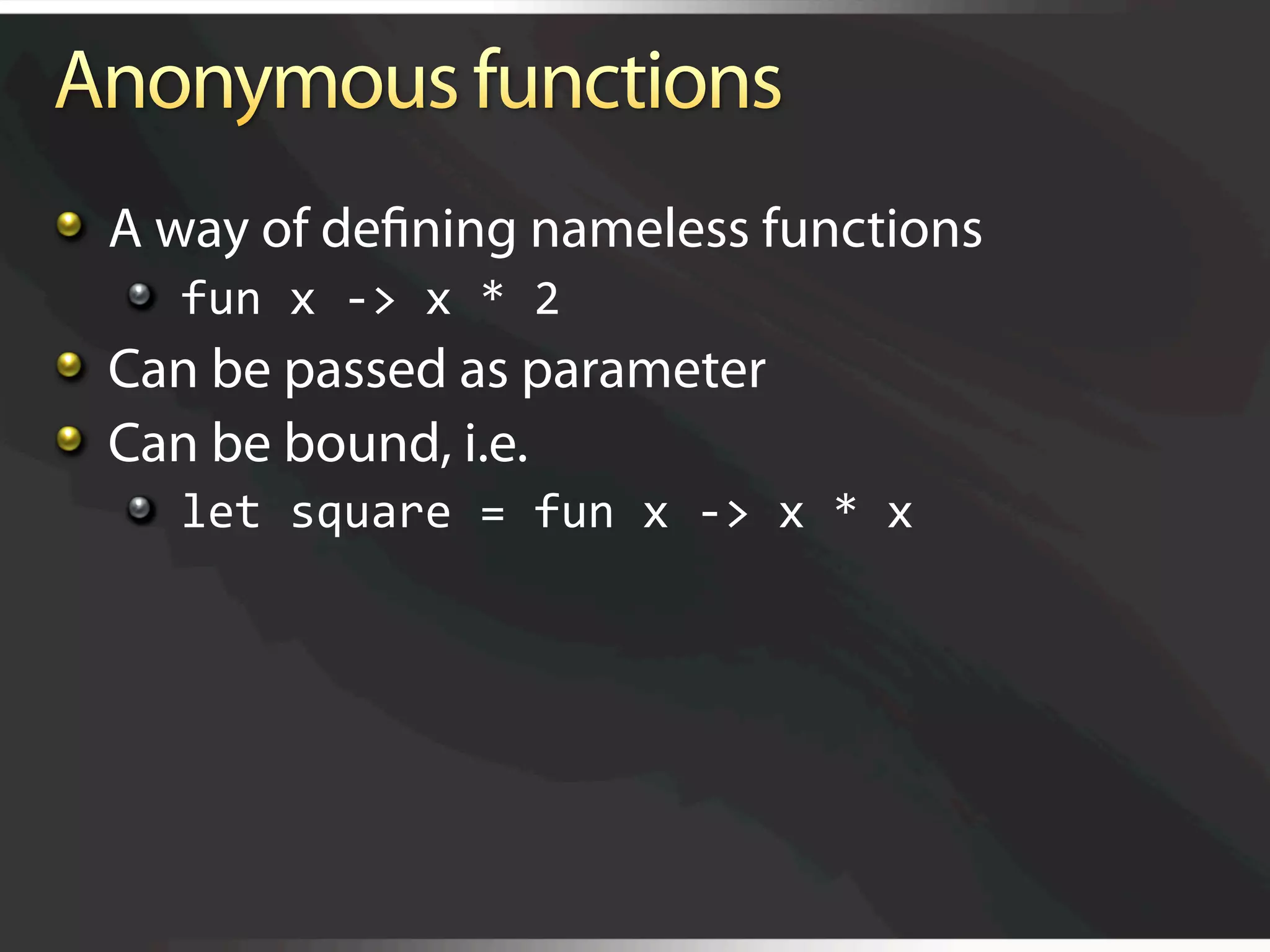
![Used to provide LINQ-like features to lists and sequences
let myList = [1; 2; 3]
List.iter (fun f ‐> printfn “%d” f) myList
Iterates through the collection
List.map (fun f ‐> f + 1) myList
Returns a modified list [2; 3; 4] – LINQ Select()
List.filter (fun f ‐> f % 2 = 0) myList
Returns only odd elements – LINQ Where()
Other useful functions (e.g., List.to_array)
Similar features in seq](https://image.slidesharecdn.com/dmitrinesterukfsharp1-090924035648-phpapp02/75/Functional-Programming-in-F-24-2048.jpg)
![Operators can be piped
values |> List.map (fun f ‐> f + 1)
|> List.filter(fun f ‐> f > 0)
And functionally composed
let even = List.filter
(fun f ‐> f % 2 = 0)
let positive = List.filter
(fun f ‐> f > 0)
let evenAndPos = even >> positive
evenAndPos [1; ‐2; 4]
yields [4]](https://image.slidesharecdn.com/dmitrinesterukfsharp1-090924035648-phpapp02/75/Functional-Programming-in-F-25-2048.jpg)
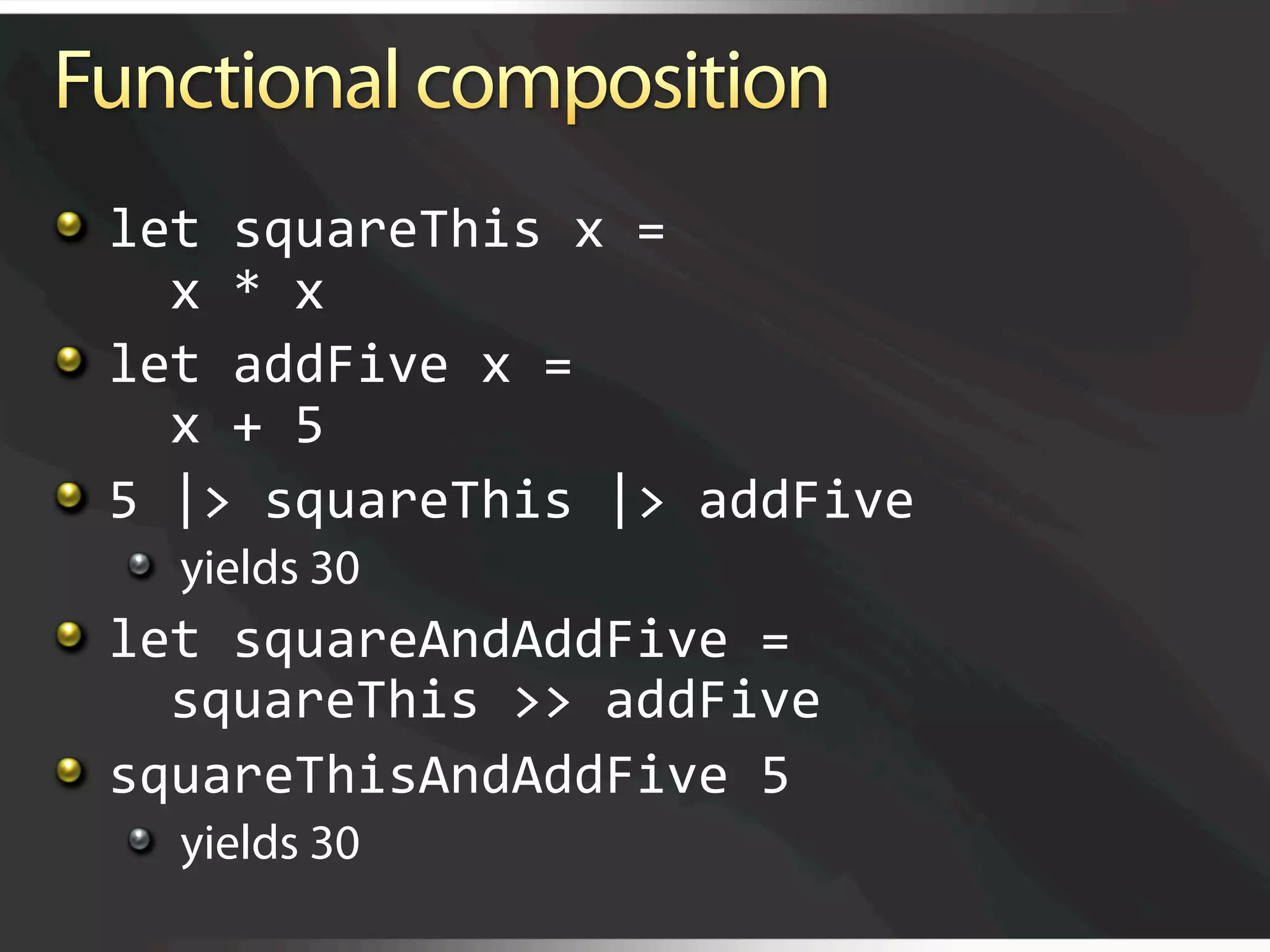
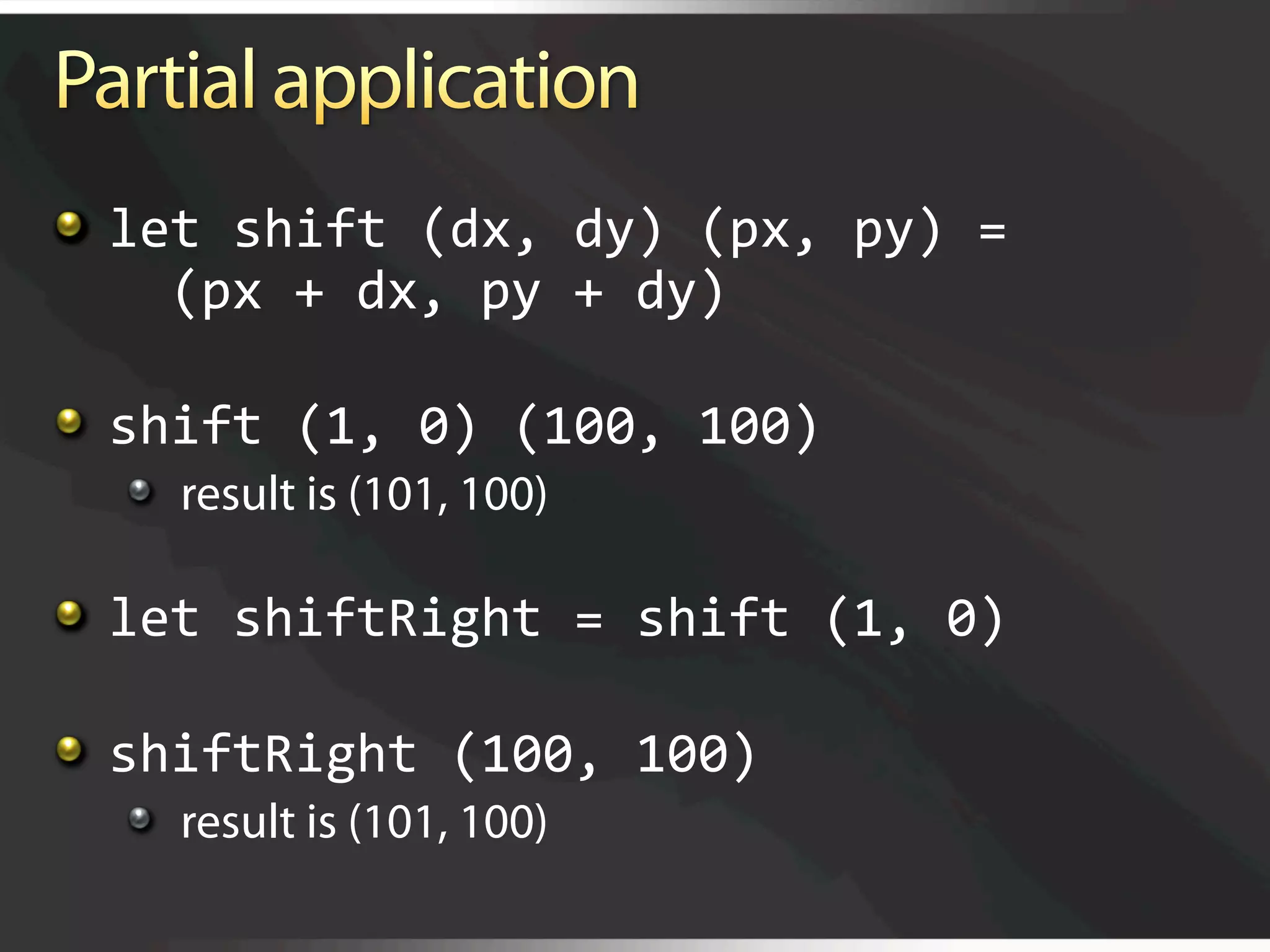
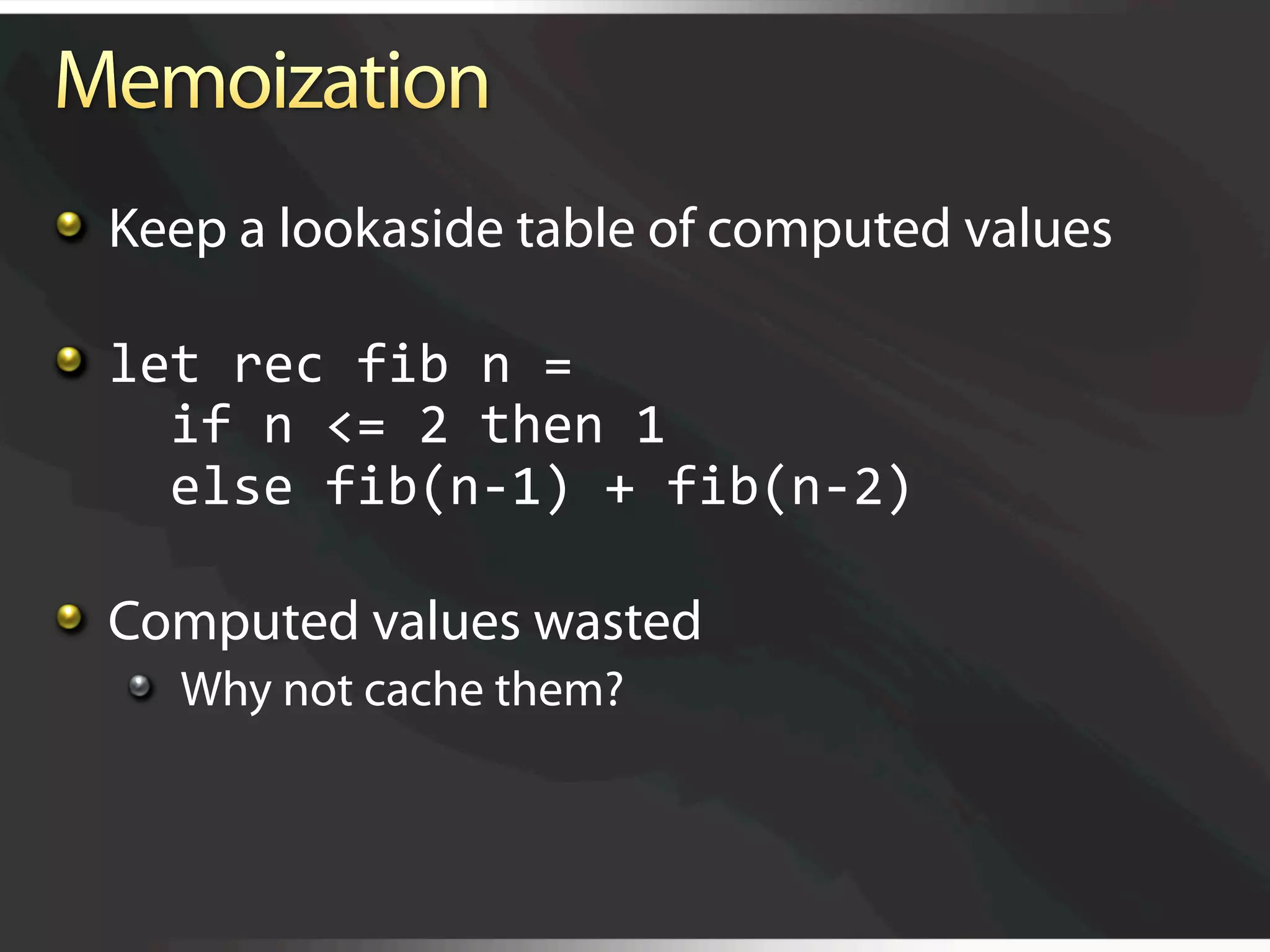
![let fibFast n =
let t = new Dictionary<int,int>()
let rec fibCached n =
if t.ContainsKey(n) then t.[n]
else if n <= 2 then 1
else let res =
fibCached(n‐1) + fibCached(n‐2)
t.Add(n,res)
res
fibCached n](https://image.slidesharecdn.com/dmitrinesterukfsharp1-090924035648-phpapp02/75/Functional-Programming-in-F-29-2048.jpg)
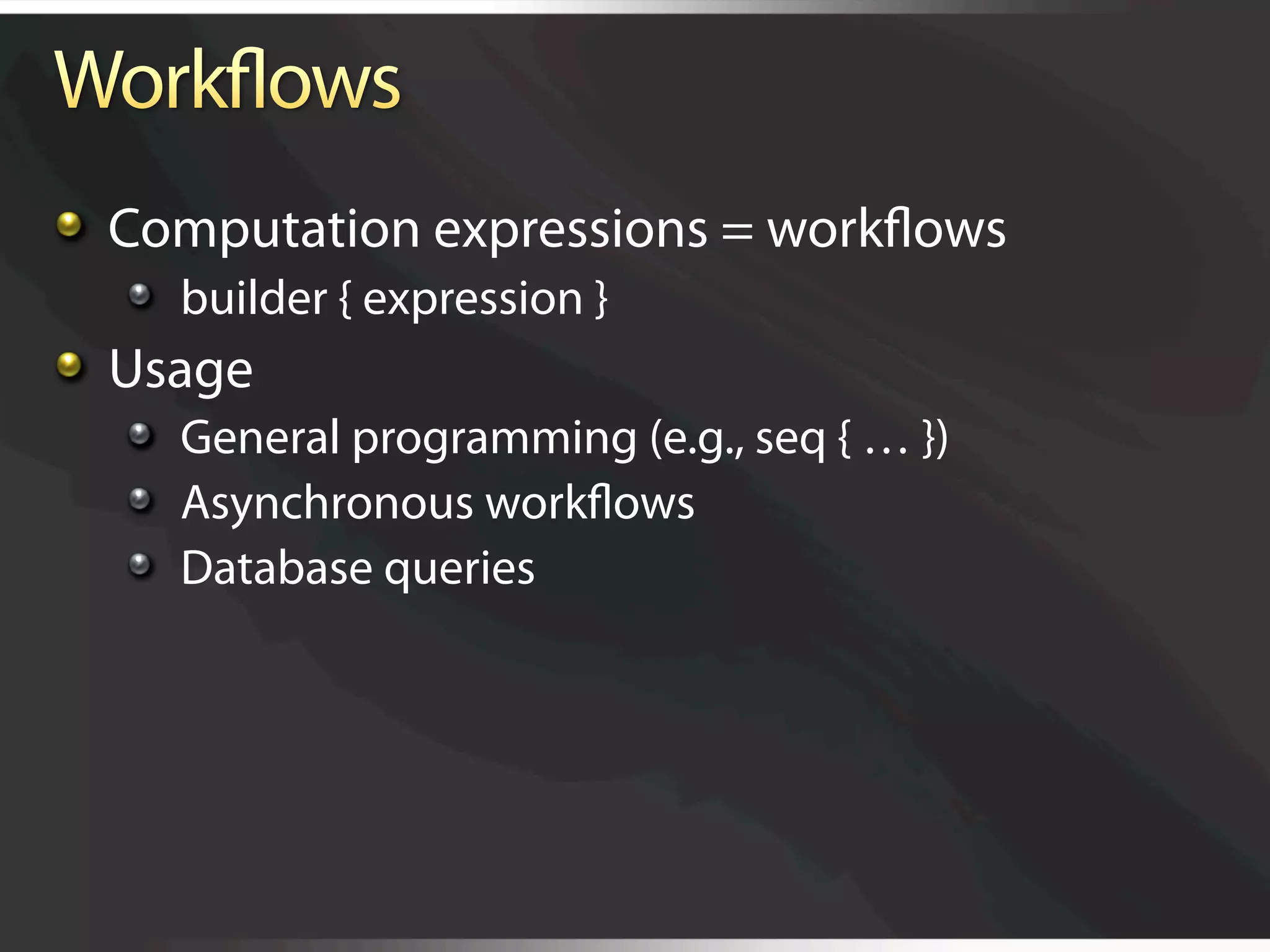
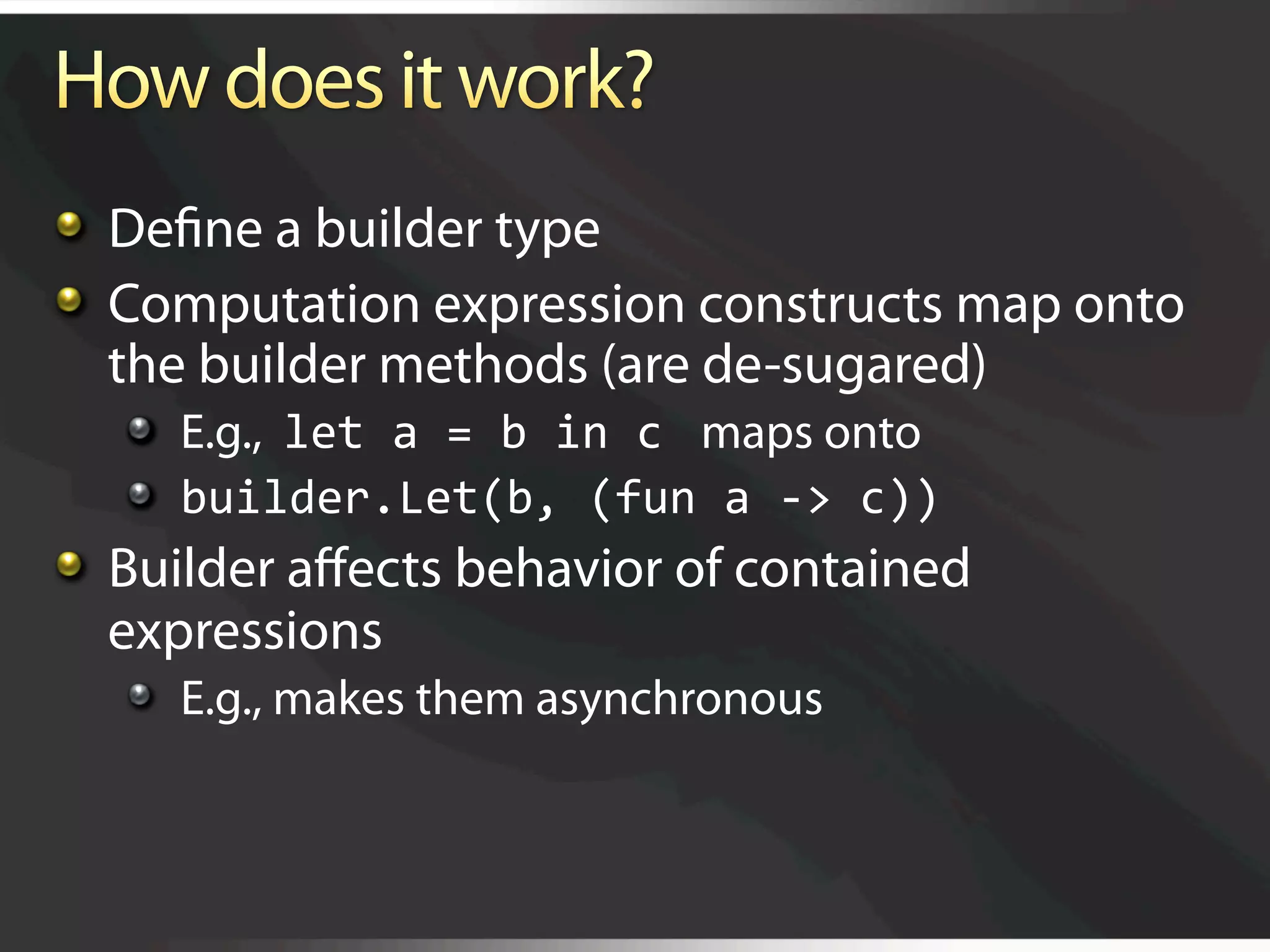
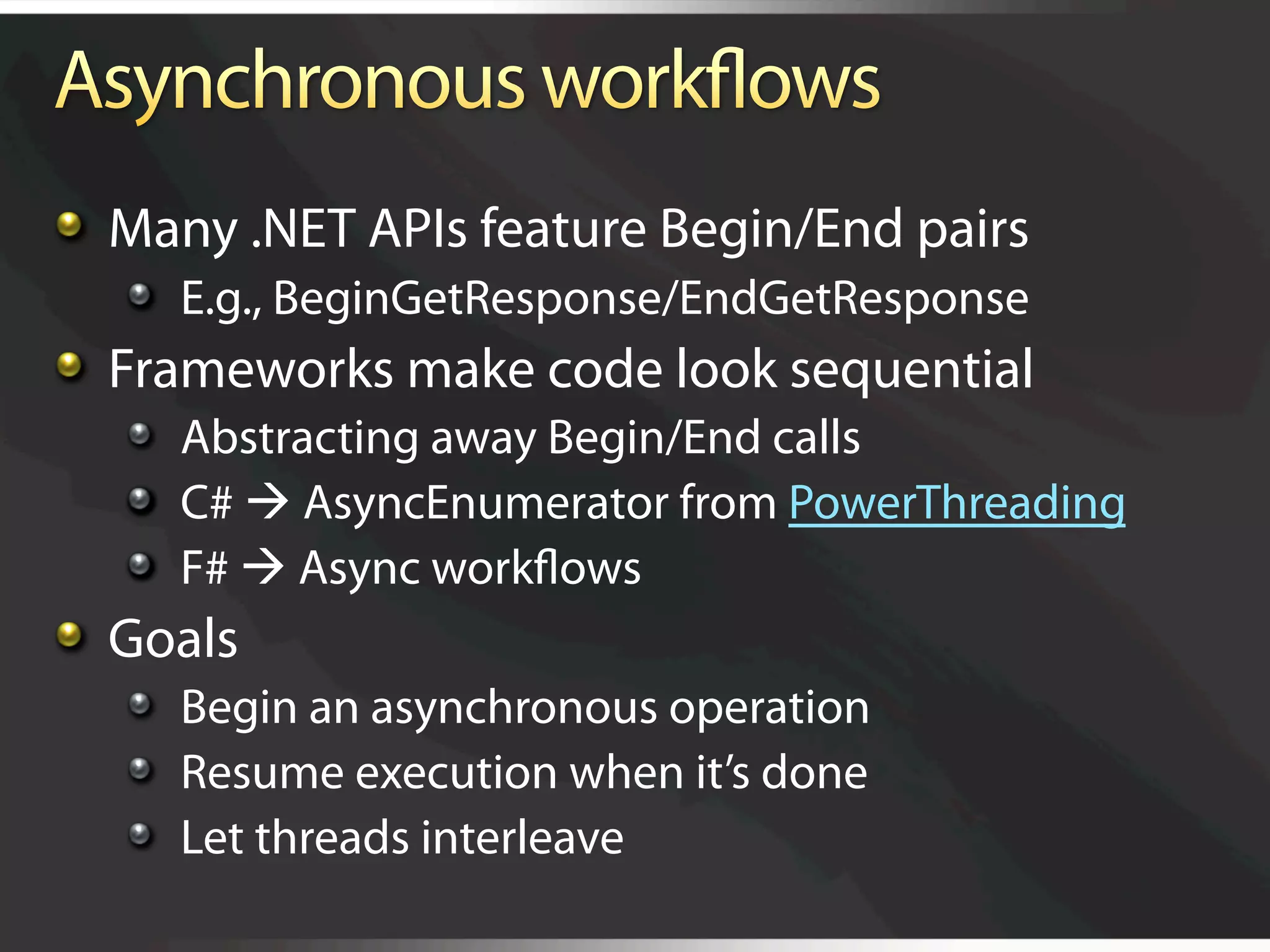
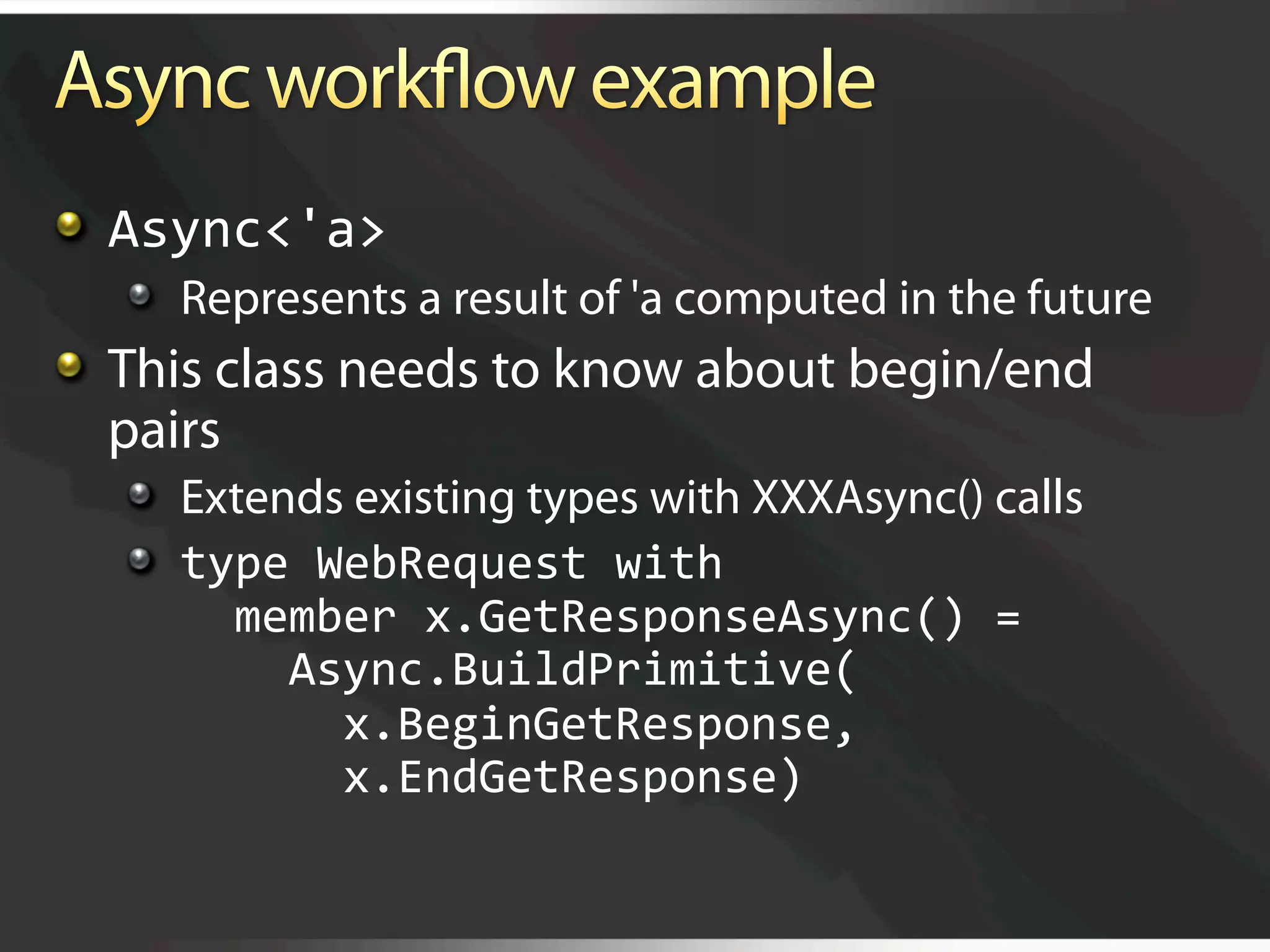
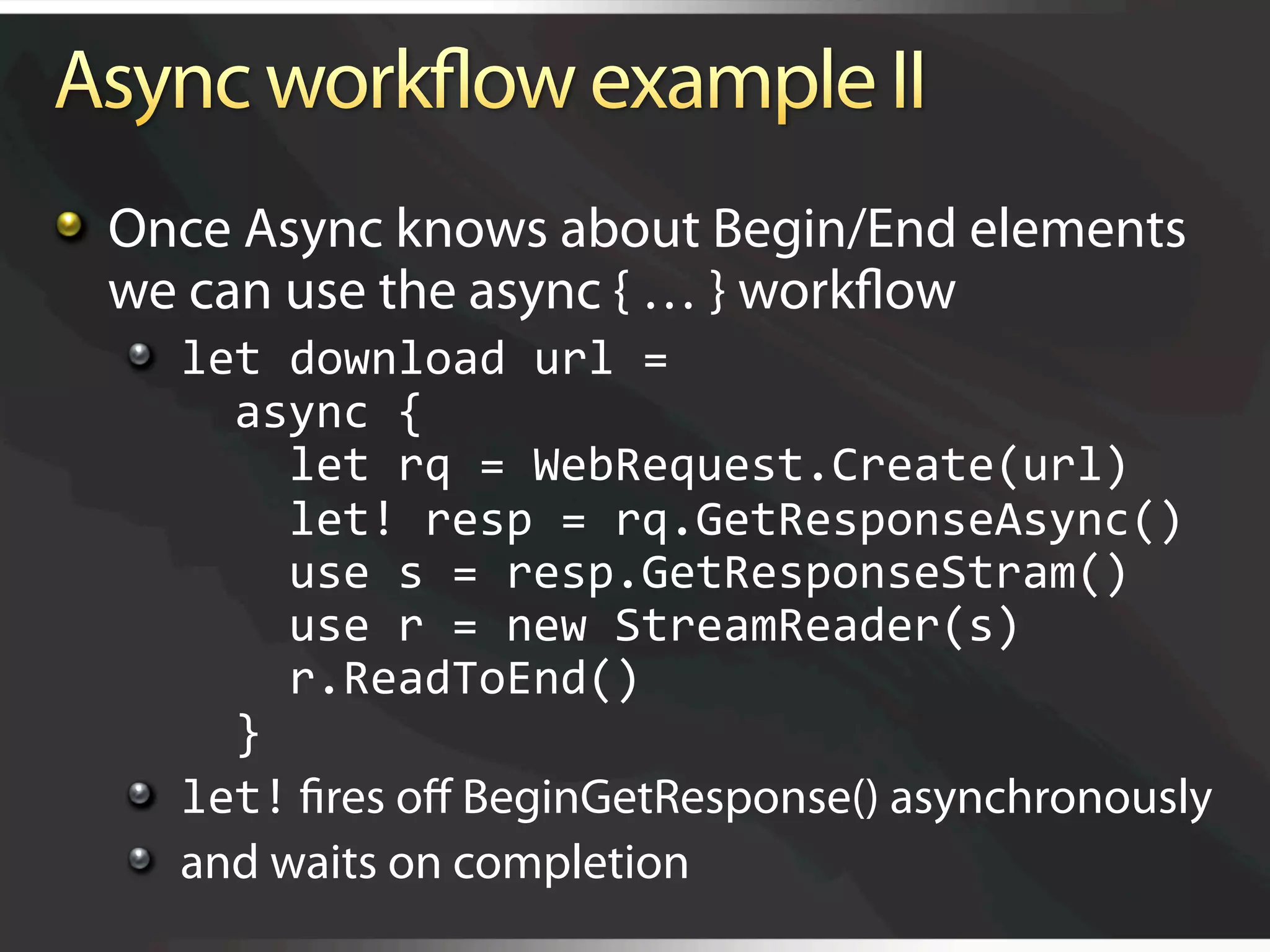
![let urls = [
“http://spbalt.net”;
“http://sp.ineta.ru”;
“http://altdotnet.org” ]
Spawn one-by-one
for url in urls do
Async.Spawn(download(url))
Send all at once
urls |> List.map(fun f ‐> download(f))
|> Async.Parallel |> Async.Run](https://image.slidesharecdn.com/dmitrinesterukfsharp1-090924035648-phpapp02/75/Functional-Programming-in-F-35-2048.jpg)

